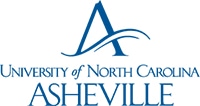What place do diversity and decolonialization have in the German curriculum? What current implementation models exist, which help diversify and decolonialize German curricula by encouraging empathy across various lines of difference? What movement can be cultivated from such work and what role does/can German Studies play in shaping broader diversity and social justice initiatives at institutions across the country? The conference brings together scholars and practitioners at all stages in their career from North American and international institutions in order to answer these and related questions.
“Diversity, Decolonialization, and the German Curriculum” is divided into two parts. One part entails presentations and discussions considering work intersecting German applied language, cultural, feminist, queer, gender, black, and/or ethnic studies engaging the questions above. The other part consists of a series of workshops during which participants develop concrete lessons, modules, mission statements or manifestos suitable to engender curricular and other change at participants’ home institutions.
“Diversity, Decolonialization, and the German Curriculum” is divided into two parts. One part entails presentations and discussions considering work intersecting German applied language, cultural, feminist, queer, gender, black, and/or ethnic studies engaging the questions above. The other part consists of a series of workshops during which participants develop concrete lessons, modules, mission statements or manifestos suitable to engender curricular and other change at participants’ home institutions.
Organizers |
Regine Criser, Ph.D.
Assistant Professor of German University of North Carolina, Asheville [email protected] Ervin Malakaj, Ph.D. Assistant Professor of German Sam Houston State University [email protected] |
Use of Site |
We plan on using this site to share information about the conference organization. It will serve as archive for resources and summaries of discussions post conference as well.
|
The conference is generously funded by:
Wiebke Strehl, Ph.D. (Dean of Humanities, UNCA) | Dan Pierce, Ph.D. (NEH Distinguished Professor of History)
Wiebke Strehl, Ph.D. (Dean of Humanities, UNCA) | Dan Pierce, Ph.D. (NEH Distinguished Professor of History)



